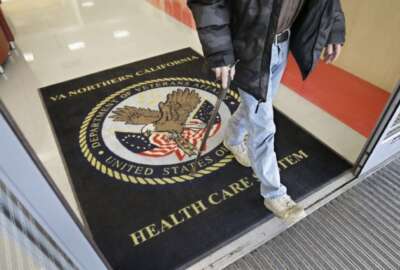VHA grants 15% pay raise to HR personnel using Special Salary Rate
The Veterans Health Administration approved a Special Salary Rate for HR professionals at the end of last year, and covered employees will see the pay bump appear...
The Department of Veterans Affairs is looking to grow its human resources staff to meet its hiring, onboarding and retention goals for its health care workforce.
To meet its HR staffing needs and encourage new hires, VA’s Veterans Health Administration is giving its HR workforce about a 15% pay increase.
VHA approved a Special Salary Rate for HR professionals at the end of last year, and covered employees will see the pay bump appear in their paychecks, starting this week.
VA Press Secretary Terrence Hayes said Wednesday that the SSR covers VHA HR specialists (GS-0201) and HR assistants (GS-0203) in grades GS-4 through GS-15.
Nearly 8,000 HR employees are eligible to receive the SSR. According to March 2023 data from the Office of Personnel Management, VHA employed 6,749 HR specialists and 1,242 HR assistants in grades GS-4 through GS-15.
“Broader implementation will be considered through the fiscal year,” Hayes said.
VHA implemented the SSR for HR specialists and HR assistants on Dec. 31, 2023. Covered employees will see their first paycheck with the SSR this Friday, Jan. 19.
In some cases, covered employees may not feel the full effect of the approximately 15% raise, which is added after locality pay adjustments.
Federal employee pay under the General Schedule, with or without the SSR, is capped at level IV of the Executive Schedule pay scale, which is $191,900 in 2024.
Federal Times first reported VHA authorizing the SSR for HR staff.
To keep up with VA’s record hiring efforts in its health care workforce, VHA estimates it will need to hire about 1,000 HR professionals each year. VHA saw about a 20% vacancy rate in its HR workforce in 2022.
David Perry, VHA’s chief officer for workforce management and consulting, said in an interview last November that the agency’s HR-STAR program is now on track to deliver a new cohort of 80-100 trained HR professionals each month, ready to work in regions where they’re most needed.
The HR-STAR program saw its cohort graduate in October 2023, and it’ll keep producing new VHA HR experts each month. About 10,000 individuals have applied for the HR-STAR program.
Perry said it takes new HR hires at VHA about three years to fully understand everything about the job. That’s because VHA has separate pay and workforce regulations for medical personnel — covered under Title 38 of the U.S. Code — and non-medical personnel — covered under Title 5.
VHA human resources personnel are the latest — but not the last — recipients of the VA’s new pay flexibilities.
VA’s Office of Information and Technology (VA OIT) implemented an SSR last summer resulting in a 17% average pay raise for its IT and cybersecurity employees.
VA OIT leaders said the SSR helped it make 1,000 new hires and improve retention in 2023.
VA OIT also received top marks on the 2023 Mission-Support Customer Satisfaction Survey. conducted by the Office of Management and Budget and the General Services Administration. It ranked number-one among agencies with more than 100,000 employees on the scorecard.
Under the PACT Act, which expands VA health care and benefits eligibility for veterans exposed to toxic substances during their military service, the VA has the authority to set Special Salary Rates for non-medical positions that fall under Title 5.
Hayes said VHA intends to submit SSR requests for additional Title 5 occupations.
VA Secretary Denis McDonough told reporters in October that the department is putting PACT Act recruitment and retention incentives to effective use, and that they’ve helped the department far exceed its recent hiring goals.
“We have more tools that we’ll be announcing soon on this, because this is a profoundly important issue,” McDonough said at a press conference on Oct. 25, 2023.
The VA, under the PACT Act, is also able to offer a critical skill incentive (CSI) to employees with skills that are in high demand, or short supply at the department, and serve a “mission-related need.”
VA data shows nearly 32,400 employees received higher pay through the critical skill incentive between Aug. 19 and Oct. 31. A majority of the CSI awards went to HR specialists and assistants, housekeeping aides, security personnel, and police officers.
A small percentage of those critical skill incentives, however, went to career senior executives at VA headquarters. The VA announced in September that it canceled nearly $10 million of these bonuses to VA executives who were found to be ineligible for the awards.
McDonough said last November that VA was “a little overzealous on the execution of the critical skills incentive.”
McDonough told reporters that the VA is focused on managing the critical skills incentive and SSR carefully, “because we are showing a pathway forward for the rest of the federal government.”
“We have these authorities in a way that many of our federal agency partners do not, and would like to have it. So, we want to make sure we manage these tools,” McDonough said at a Nov. 29 press conference.
Copyright © 2025 Federal News Network. All rights reserved. This website is not intended for users located within the European Economic Area.
Jory Heckman is a reporter at Federal News Network covering U.S. Postal Service, IRS, big data and technology issues.
Follow @jheckmanWFED






